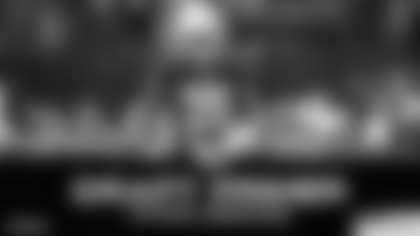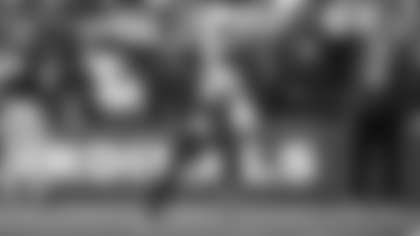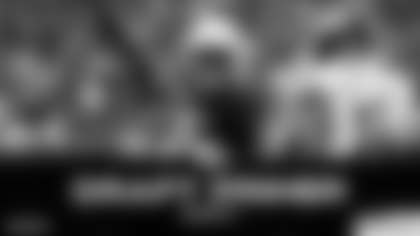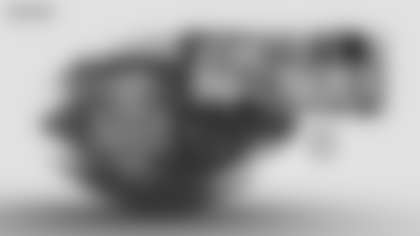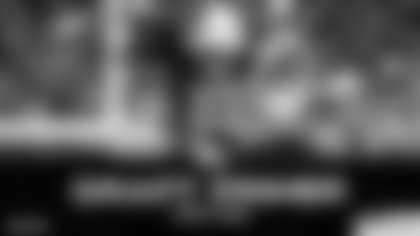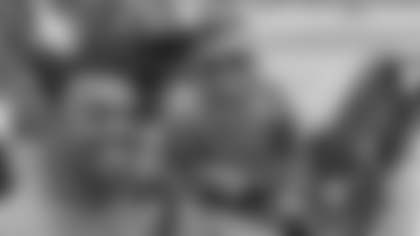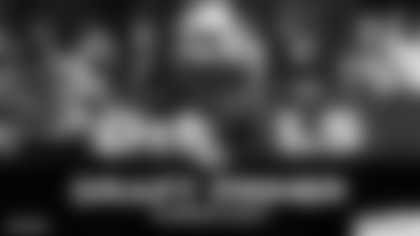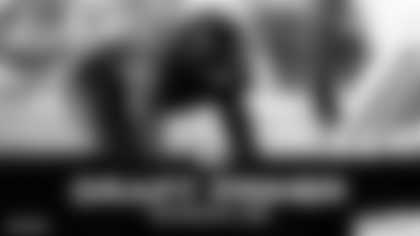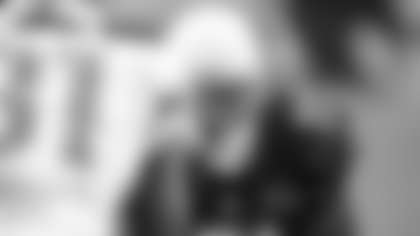Cardinals strength and conditioning coach Buddy Morris (white shirt) talks with New South Wales assistant coach Matt Parish (left) while New South Wales General Manager Barrie-Jon Mather (center) walks behind and New South Wales coach Laurie Daley speaks with Cardinals strength and conditioning intern Anthony Piroli.
New South Wales ended an eight-year drought against Queensland in the historic State of Origin Australian rugby series last year.
That was probably news to Cardinals coaches this week, but if New South Wales repeats in 2015, its football counterparts may be able to take the slightest amount of credit.
As New South Wales General Manager Barrie-Jon Mather explained from the Cardinals' practice facility in Tempe, the club is continuing to take offseason steps intended to keep it on the winning track.
Mather, New South Wales coach Laurie Daley and assistant coach Matt Parish stopped in to pick the brains of the Cardinals'
coaches and strength and conditioning staff on Thursday, looking for any and all advice they can implement back home in Australia to improve the club's chances of success.
"While they are different games, there are things that are similar that you can certainly incorporate," Daley said. "It's great to get this access and experience."
The trio was given a tour of the Cardinals' weight lifting and training areas before meeting with coaches to discuss aspects where the sports intersect. Special teams assistant Anthony Blevins and offensive assistant Kevin Garver talked shop with Mather, Daley and Parish for two hours.
"It was really interesting to hear about the differences in our game and theirs, but as we talked we found out that rugby and American football have a lot in common," Blevins said. "We had a very detailed discussion about how they teach tackling and how we teach tackling. They were able to share some insight that could help us and we were able to share some things with them that will help them."
A pair of subjects jumped out to Garver during the conversation.
"The two most unique things they talked about were how they used heart rate monitors on their players to help them have a
high-intensity practice and put their players in a more realistic situation; the other thing was how they meet with only a couple of players for their game plan and then they are responsible to get the plan to the other players," Garver said. "Overall, a very good visit with good guys. They deal with the same issues as any sport, like how to keep players motivated, how to create realistic situations in practice (and) player discipline."
The New South Wales team is no stranger to information gathering across the U.S. It has made similar stops with the Philadelphia Flyers, Penn State, Stanford and Red Bull Racing, and will meet with the Diamondbacks later on this trip. However, rugby and football are very similar skill-wise, and Mather said the conversations held with the Cardinals hold special significance.
"The energy requirements, the makeup of the teams and the rules, they are very similar to rugby," Mather said. "We're looking at the mental, the physical and the lifestyle – how we can make gains in those areas. We only get our players for a limited amount of time and we need to make sure they're fit to play and on top of their game."
The 49ers made headlines last month when they signed rugby star Jarred Hayne, who played under Mather in the National Rugby League for the past nine years. Mather and Daley – who coached him the past two seasons – know how hard it will be to replace a player of Hayne's quality, but are intrigued to see how he fares against NFL competition.
"It's their game and it feels completely different, but he's big and fast, has great hands," Daley said. "If anyone's going to make it from Australia, it would be him. He's giving up a lot. He's giving up over $1 million a year on a contract to come over here, where I think he's earning $80,000 on a futures contract or whatever they call it, and he can be cut at any time. But he's prepared to hang in there and give it a go."
If Hayne succeeds, it might open up more opportunities for rugby players in the NFL, Daley believes.
"It's exciting, because if he is a success it's good for our game, because then more people will come down and have a look at athletes because there are a lot of other athletes down there," Daley said. "If he can make it I think there are a couple of others that can make it as well."




